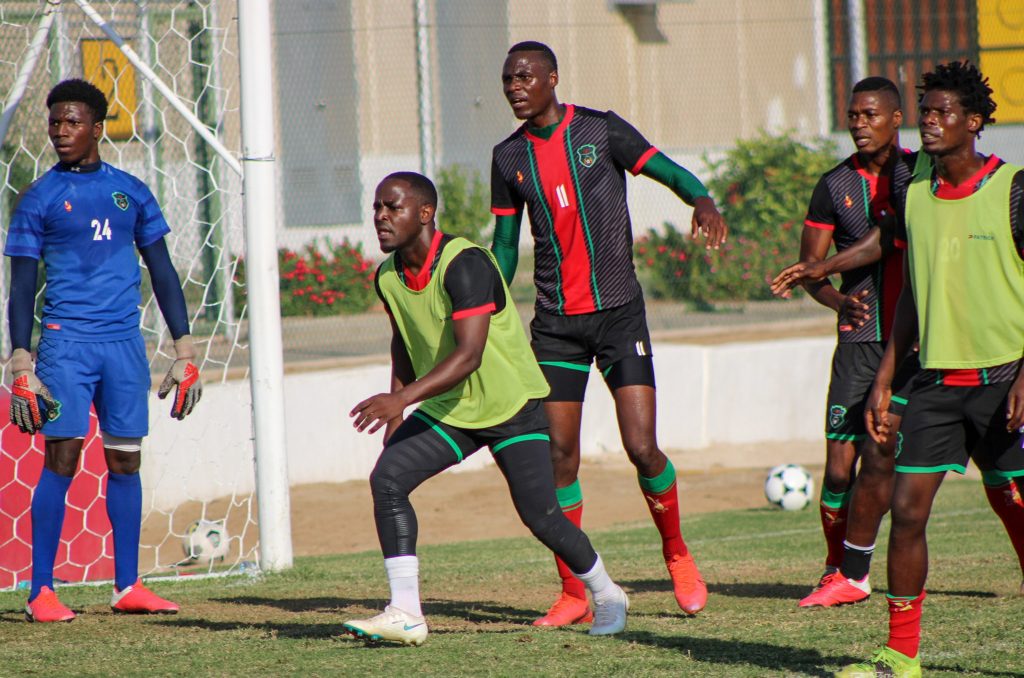Malawi overlooks players diet
European players’ agency, Perican Sports, which took five Malawian players for trials in Turkey, has observed that the players needed food supplements to attain the body shape and physique to play football at a high level.
The agency said this on Tuesday in relation to the status of the players’ trials.

Blessings Mpokera and Alick Lungu of Nyasa Big Bullets, Chawanangwa Gumbo of Ekwendeni Hammers, Karonga United’s Mphatso Kamanga and Bangwe All Stars’ Fanizo Mwansambo were spotted by the agency during Under-23 friendly games in Turkey three months.
A statement from the agency said: “We have done everything on these players, training and feeding them at CampProfi Istanbul, Gumbo and Mpokera have reached special level with individual protein support, fortified foods and exercise. And you will now see them at national team.”
Football analyst George Kaudza Masina, who is also Silver Strikers board chairperson, attributed the situation to lack of knowledge on the importance of nutrition to the players’ development.
“The trained coaches deliberately ignore food science due to poverty. Where these are introduced, there has been resistance for our athletes to change their eating habits.
“Real professional athletes have embraced diet in their daily programmes and so too clubs. It is imperative to understand how height, weight and body mass have to be talking to each other for the good of our athletes. In serious clubs worldwide, if an athlete becomes overweight or underweight beyond the minimum, he is either dropped or fined and this makes them to be on guard all the time for the good of their career.”
On his part, football marketing analyst Kevin Moyo said it was a wake-up call for Malawian clubs and other African countries to embrace nutrition as critical to footballers’ development.
“Apart from skill, speed and agility, nutrition is part of the building process of any elite athlete. Players need to build muscle and have low body fat to excel at top level. It is very difficult for players who weigh less than 70 kilogrammes to play in top leagues. Remember how small Gabadinho Mhango was before joining South Africa’s Orlando Pirates.”
Another analyst, Felix Nyamanya Sapao said the modern game needs nutritionists.
“The game has evolved and how athletes train should be complemented by what they eat. The game and athletes are monitored on a daily basis and good eating habits are key for any sport,” he said.
Sapao called for a mindset change for local clubs to take issues of diet seriously.
Silver Strikers chief executive officer Thoko Chimbali said the club attaches great importance to the issue of nutrition.
“Our medical personnel prescribes the food for the players. However, the onus is on the players to follow the instructions,” he said.
On his part, Ekwendeni Hammers general secretary Benjamin Thole attributed the situation to lack of resources.
“This is true, but if we are struggling to meet basic needs for the club, how can we talk about nutrition of our players? Much as we know its importance, for Ekwendeni Hammers we cannot manage this now because of lack of resources,” he said.
Reacting to the concern, Football Association of Malawi media and communications director Gomegzani Zakazaka admitted that Malawian clubs overlook the importance of nutrition to the conditioning of their players.
He said: “As a country, we have not taken the issue of diet of not only players but athletes in general seriously. Basically, we have concentrated more on just playing the game, basic aspects of training, coaching and the like. It’s something we have to look into if we are to develop football to be specific,” he said.
However, Zakazaka said they have put in place measures to ensure that players are offered good diet and healthy practices.
While commending Nyasa Big Bullets for leading the way by recruiting a physiotherapist, Zakazaka urged clubs to complement FAM’s efforts as national team players spent most of their time with their clubs.
He said: “We need to do more at club level now because at national level we stay with these boys for a short time, two weeks a week and sometimes five days. This is a short period to work on players in terms of nutrition for their continuous development.
“But if you look at nutrition at this level, they also come with expenses looking at the structure of our game in terms of resources, it’s also another issue that affects us as we want to develop the game.”





